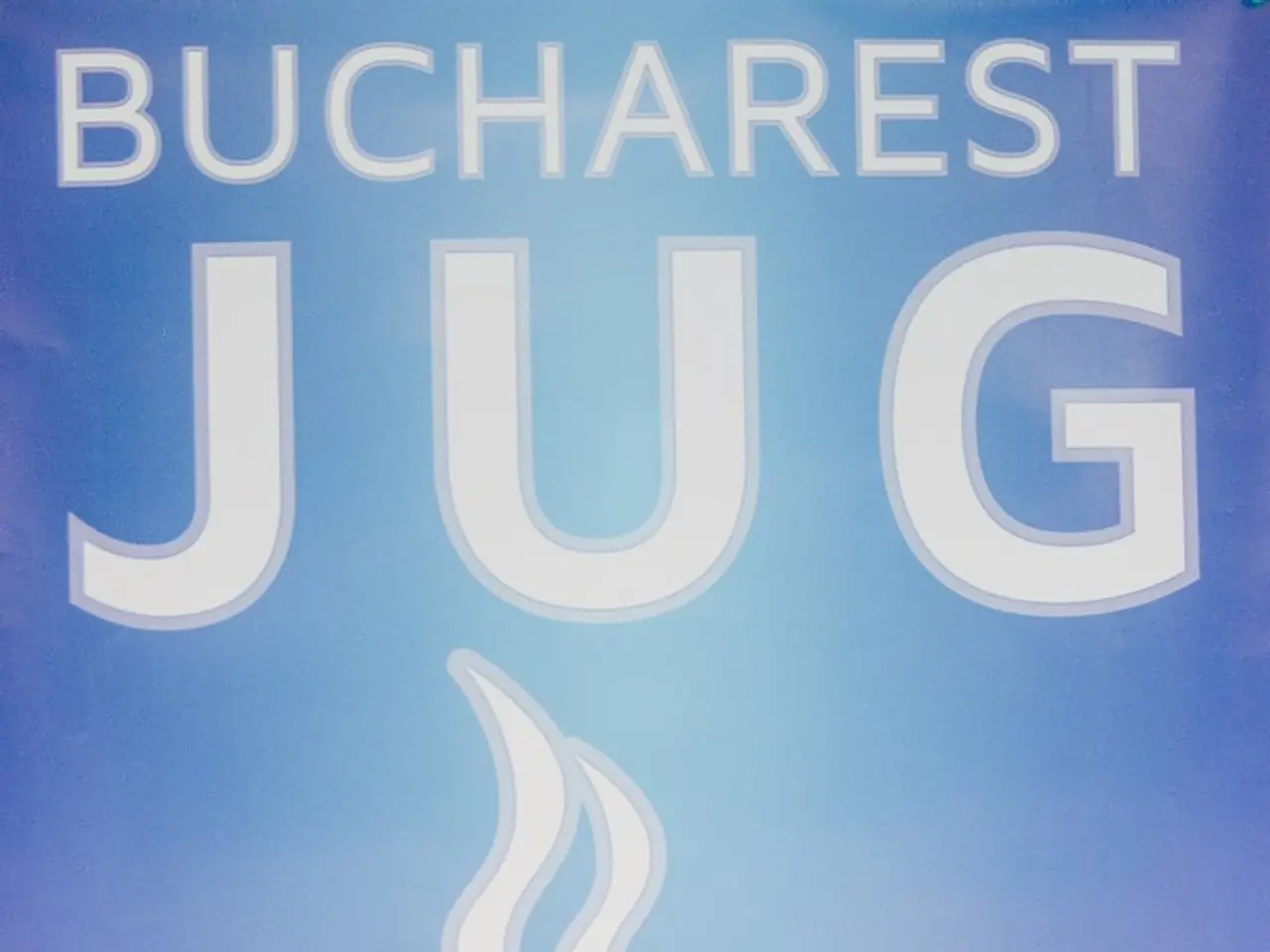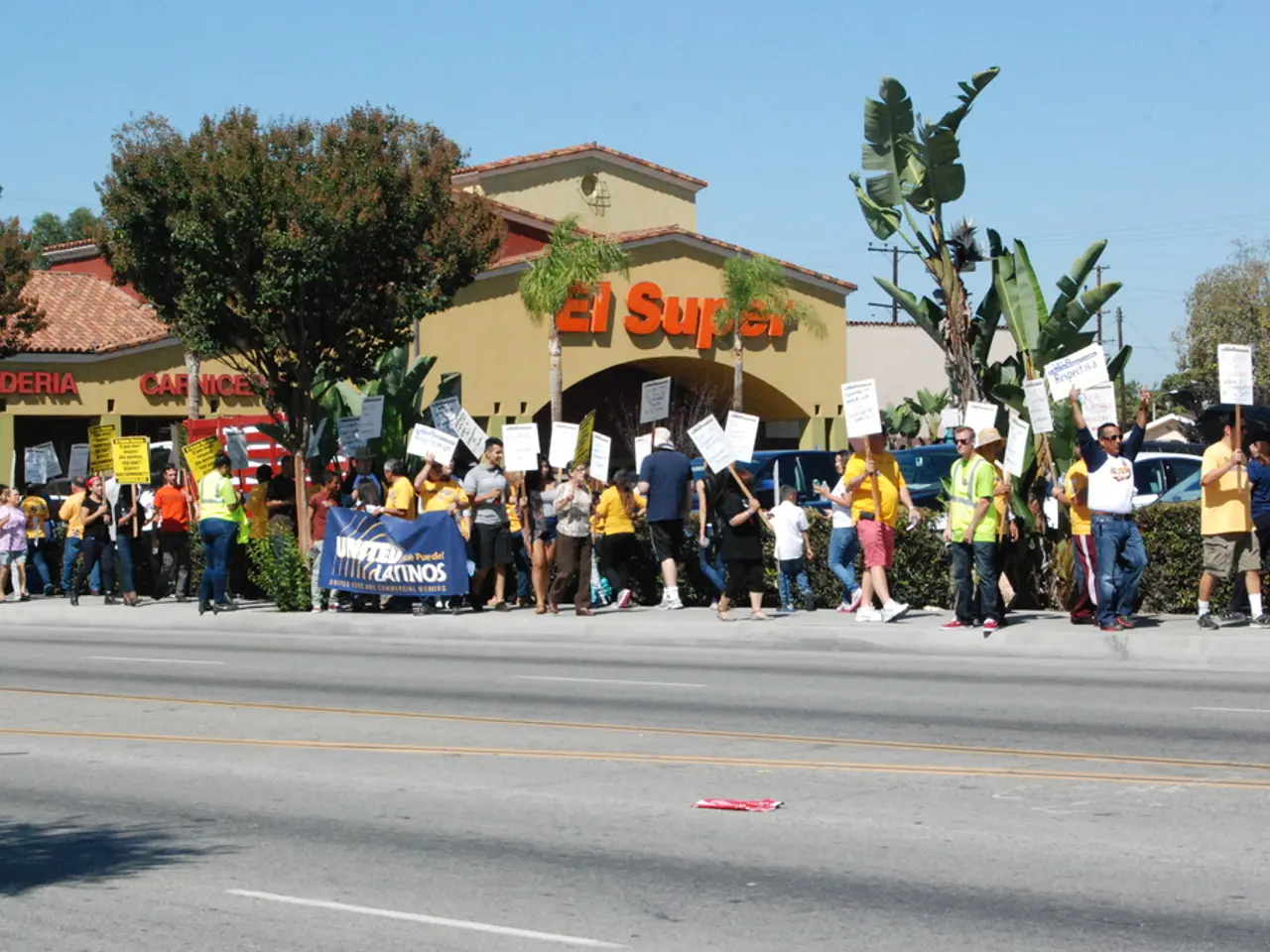European Union Advocates Multiple Strategies to Combat Terrorism Activities
In a poignant display of solidarity, the entrance of number 18 on Avenue d'Auderghem in Brussels was filled with an orange wave of life jackets on a recent Friday morning. The symbolic life jackets, each representing a life that could have been saved, were placed by the non-governmental organization Sea Watch in front of the European Agency for Border and Coast Guard (Frontex) installations.
The action was a response to ongoing disputes between Sea Watch and Frontex, particularly in the context of the Mediterranean Sea. The primary points of contention revolve around allegations of human rights violations, lack of transparency, and the need for greater accountability within Frontex and EU migration policies.
One of the key issues is the involvement of Frontex in pushbacks of migrants to unsafe territories, such as Libya, which is a breach of international law. These actions have been criticized by NGOs and legal bodies for violating human rights. Frontex has also been accused of not providing sufficient information regarding its operations and incidents involving migrants, hindering efforts to hold the agency accountable for any violations.
Sea Watch, along with other NGOs, has been pushing for greater transparency from Frontex and national authorities regarding their operations in the Mediterranean. This includes access to data on interceptions, pushbacks, and the treatment of migrants during these operations. The debate highlights the need for more effective accountability mechanisms and democratic oversight within Frontex to ensure respect for human rights.
The dispute also reflects broader criticisms of EU migration policies that prioritize surveillance and containment over human rights protection. The cooperation between Frontex and external partners, such as Libya, has been criticized for perpetuating a cycle of abuse and neglect.
In addition, the civil fleet, which includes organizations like Sea Watch, has played a crucial role in rescuing migrants in the Mediterranean. However, these efforts are often hampered by EU policies that either directly or indirectly support practices like pushbacks.
In response to the action, Frontex demanded payment of over 11,000 euros in procedural expenses from Sea Watch in May of 2024. This demand came after Sea Watch filed a lawsuit against Frontex, for alleged human rights violations in the Mediterranean, in April 2022. The lawsuit is still ongoing.
In April 2024, the first instance of the European Union's Court of Justice rejected Sea Watch's lawsuit, considering that Frontex failed to present more than a hundred photographs. Sea Watch believes Frontex is violating the legislation on freedom of access to information.
The European Parliament has approved two resolutions, in 2021 and 2023, asking Frontex not to proceed with actions of this type against civil society organizations. Each white bag containing approximately 125 life jackets was a stark reminder of these unheeded calls for accountability and transparency.
The life jackets, placed around 09:30 local time (08:30 in Lisbon), were a powerful visual representation of the lives lost and the lives that could have been saved. The action was a call for Frontex to reconsider its practices and prioritize human rights over border control.
The protest organized by Sea Watch at the European Agency for Border and Coast Guard (Frontex) installations is a part of the ongoing debate about policy-and-legislation and politics, highlighted by the organization's criticisms of Frontex's alleged human rights violations and lack of transparency. The general-news coverage of this dispute includes discussions about changes needed in EU migration policies, particularly regarding accountability within Frontex and the treatment of migrants. Additionally, the crime-and-justice implications arise from allegations of Frontex's involvement in pushbacks of migrants to unsafe territories, which are considered breaches of international law.





